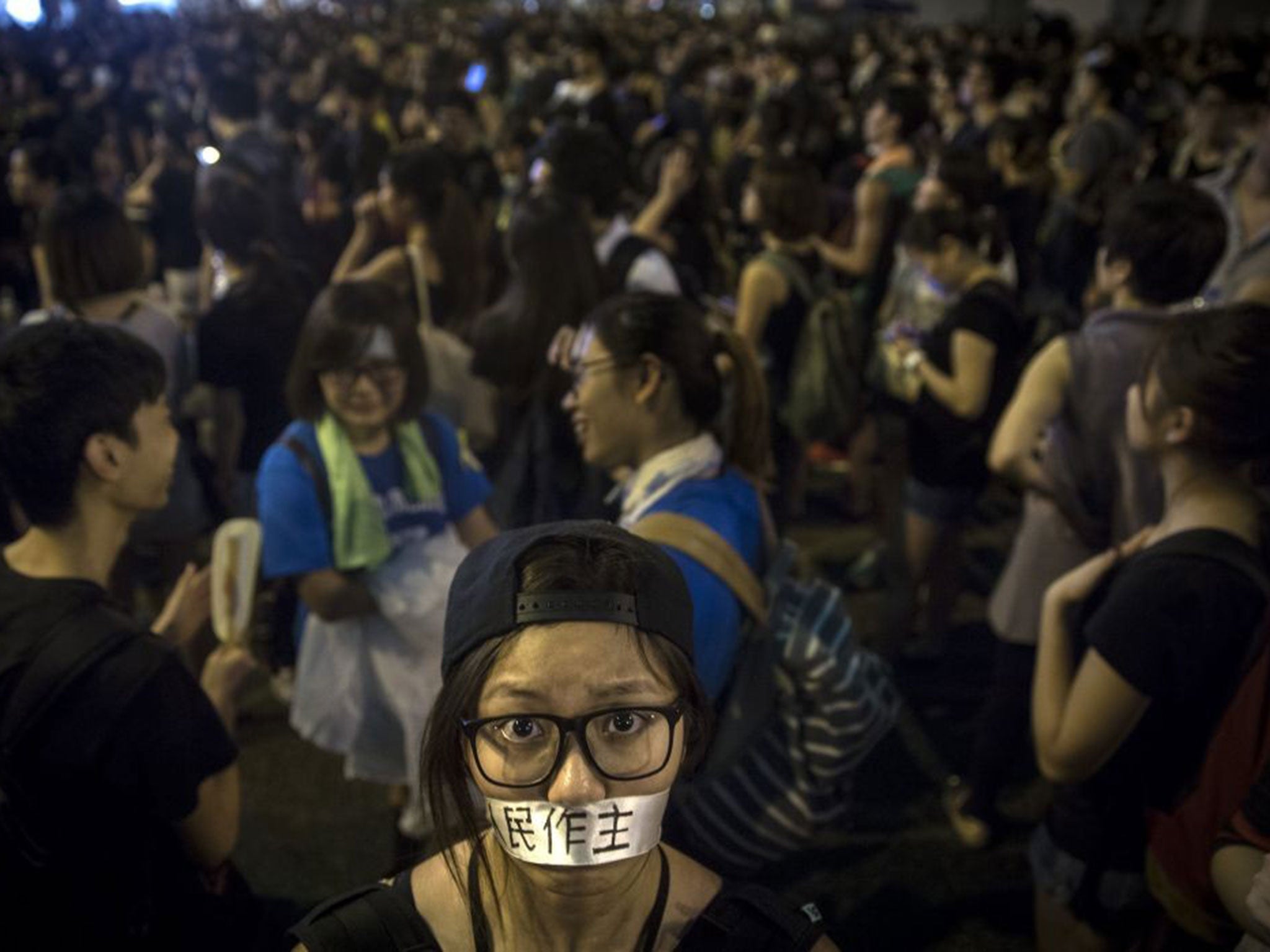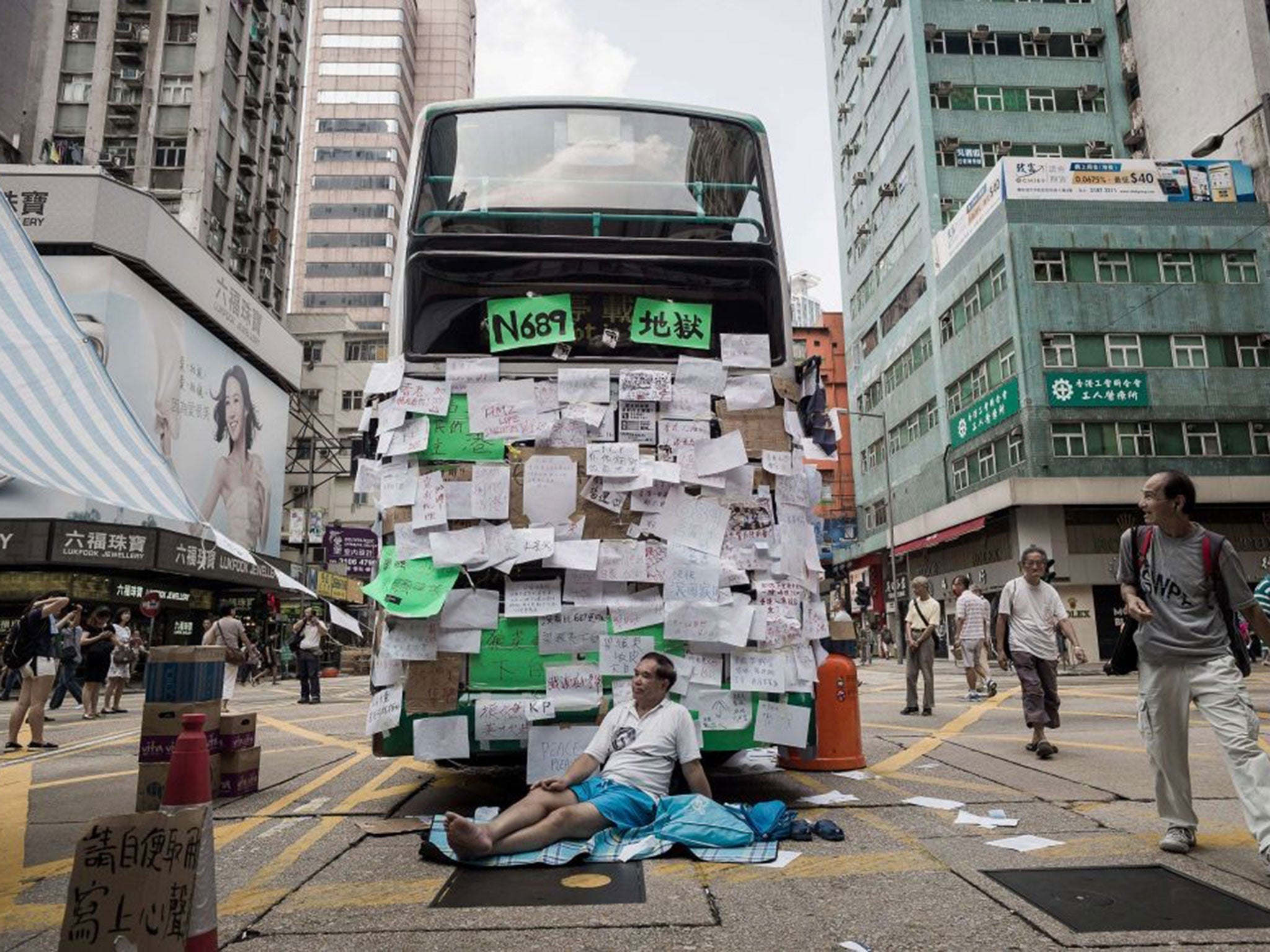Hong Kong: Britain weighs into dispute as tensions mount over national holiday
China’s Ambassador to be told of UK’s ‘dismay’ at Beijing’s attempt to deny full democratic process
Your support helps us to tell the story
From reproductive rights to climate change to Big Tech, The Independent is on the ground when the story is developing. Whether it's investigating the financials of Elon Musk's pro-Trump PAC or producing our latest documentary, 'The A Word', which shines a light on the American women fighting for reproductive rights, we know how important it is to parse out the facts from the messaging.
At such a critical moment in US history, we need reporters on the ground. Your donation allows us to keep sending journalists to speak to both sides of the story.
The Independent is trusted by Americans across the entire political spectrum. And unlike many other quality news outlets, we choose not to lock Americans out of our reporting and analysis with paywalls. We believe quality journalism should be available to everyone, paid for by those who can afford it.
Your support makes all the difference.Britain’s relations with China soured dramatically on Tuesday night over the country’s failure to allow the people of Hong Kong to freely elect their next leader, as tens of thousands of pro-democracy protesters amassed for a sixth straight day of unrest.
The Chinese ambassador to the UK has been summoned for an urgent meeting with Nick Clegg, the Deputy Prime Minister, who said he wanted to express “dismay and alarm” at the denial of universal suffrage to the former British colony.
The centre of Hong Kong remained packed with protesters on Tuesday, openly defying demands by the territory’s Chief Executive CY Leung that they leave the streets ahead of China’s National Day celebrations. Tensions are expected to rise on Wednesday, a major public holiday.
The protesters are angry about the Chinese government’s insistence on vetting candidates to be the next leader of Hong Kong ahead of public elections in 2017. Only two or three people will be allowed to stand – all of whom will have been pre-approved by the majority of a pro-Beijing committee.
David Cameron said yesterday he was “very concerned” by the situation in the former British colony and urged China to honour the terms of the Joint Declaration signed in 1984 by Margaret Thatcher. “What matters is that the basic agreement that we set out with the Chinese all those years ago should be stuck to,” the Prime Minister said. “Universal suffrage really means not just being able to vote but having a proper choice.”
George Osborne, the Chancellor, said the “prosperity and future” of Hong Kong depended on its people enjoying “basic freedoms” such as the right to protest and vote. “We have to work out a solution that is consistent with Hong Kong being part of the two China policy,” he added.

Mr Clegg said it was “essential” that the people of Hong Kong were given a “genuine choice” on who they wanted to elect as leader. “To that end I have asked for an urgent meeting with the Chinese Ambassador to reiterate our position and seek reassurances from the Chinese Government,” he added.
But the Government’s slow response to the protests was last night condemned by human rights groups. Sophie Richardson, Human Rights Watch’s China director, said some ministers’ statements on Hong Kong had been “dangerously detached from reality” and gave the impression that the UK had “no stomach whatsoever” to put pressure on the Chinese authorities.
“The British government’s response to mass democracy protests in Hong Kong has been disgracefully feeble and ineffective,” she added. “While tens of thousands have taken to the streets, at great risk to themselves, the British government has failed to condemn the heavy-handed response of the Hong Kong authorities or press vigorously for universal suffrage.”

Martin Lee, the founding chairman of the Hong Kong Democratic Party, also criticised Mr Cameron. “He has not been perceived to be protecting Hong Kong people, particularly the young people,” he said. “The riot police were deployed and they fired tear gas at very peaceful protesters.”
Allan Hogarth, head of policy at Amnesty UK, said Britain should immediately suspend the export of teargas and other related policing equipment to the territory, saying canisters with “Made in the UK” written on them had been seen on the streets.
On Tuesday a British company which has been selling teargas to Hong Kong for several years said it would review its policy. Chemring, which is based in Hampshire, said its export licences had all been approved by the British government.
Join our commenting forum
Join thought-provoking conversations, follow other Independent readers and see their replies
Comments